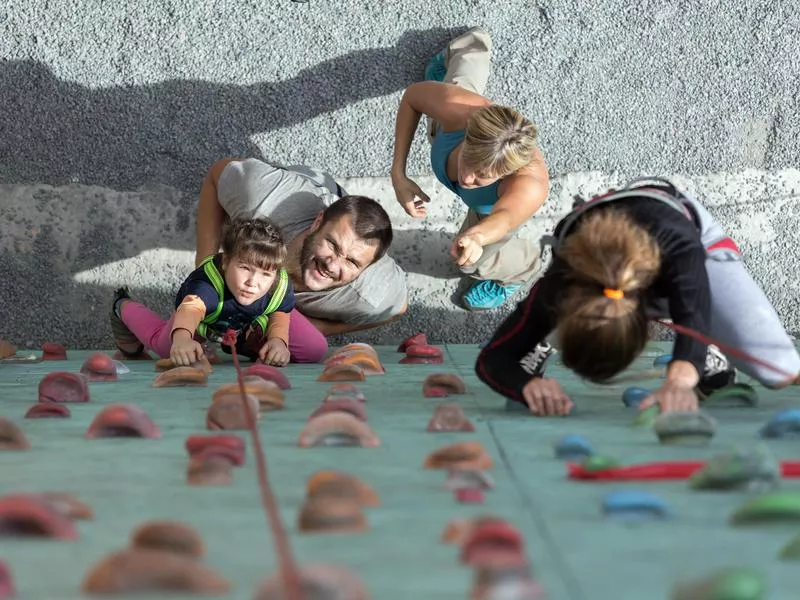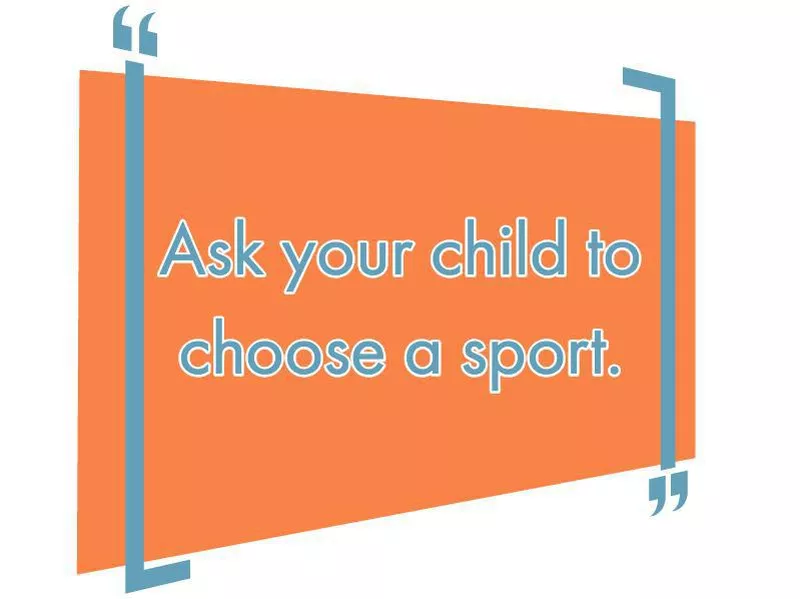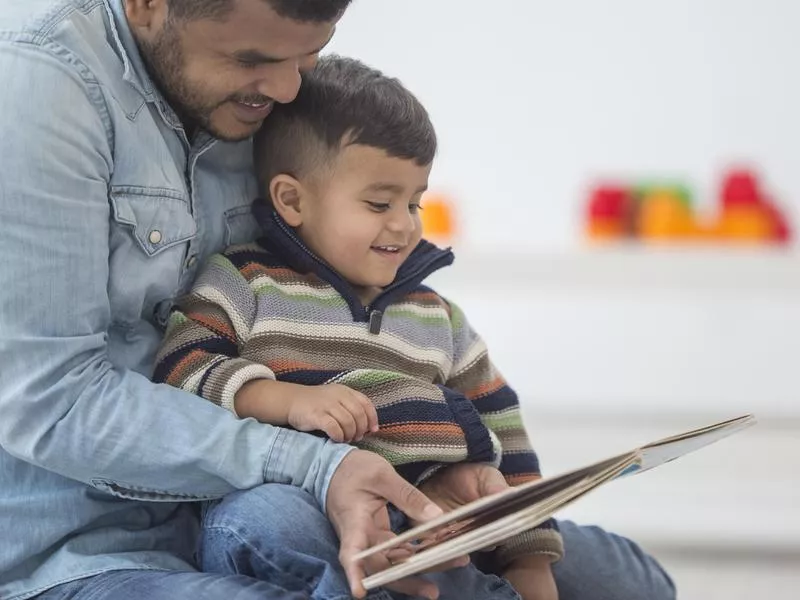How to Help Your Kid Find Their Passion
The word “passion” is defined as “any powerful or compelling emotion or feeling, as in love or hate.” It’s that tugging at the soul, that longing for something so deeply that you can’t escape it. To some, passion can be equated with life’s purpose. And once you’ve discovered what your passion is, you can pursue it wholeheartedly and bring infinite joy to your life.
The same goes for your children. They are especially prone to the uncertainties of what life is all about. As they learn and grow, their interests and talents may change, but their passion will remain whether they realize it or not. And as their parent, you can help them figure out what it is.
Here are several ways to assist your child on his or her journey to discovering their passion.
Foster Their Natural Talents

You might not know until he or she is older, but once you start to see your child’s natural talents develop, it’s important to nurture them. The innate gifts that each child is born with should be celebrated and supported.
Even if your child doesn’t become passionate about his or her natural abilities, you’ll be able to see how they connect to other interests and talents. This will ultimately lead them to the path of their passions.
Challenge Them

Encourage your child to do things that are challenging. Getty Images
Once you’ve discovered what your child is naturally good at, encourage him or her to explore the things they’re not as skilled in.
Even when your child isn’t good at something, they can still enjoy it. And at the end of the day, that’s what being passionate is all about.
Sign Them Up for a Sport

It doesn’t matter whether he or she chooses soccer, gymnastics, basketball, dance or golf, ask your child to choose a sport, and sign them up.
For children, participating in sports has many benefits, and this might help realize an interest in or natural talent for a specific sport. They’ll also gain new friends and a support system that can encourage them to follow their dreams and figure out what’s important to them.
And Then, for an Instrument

There are plenty of reasons to sign your child up to learn a musical instrument. Getty Images
Experts will tell you that there are plenty of reasons for your child to learn how to play a musical instrument. Among them, the chance that they’ll realize their passion is of an artistic nature.
Even if that passion isn’t directly related to music, it could involve writing, performing, dancing or teaching. It truly doesn’t matter which instrument he or she plays, as long as your child gives music a try, they (and you) will know relatively quickly whether or not to continue down a musical path.
Help Them With Their Homework

Passions can come in many different forms. By assisting your child with his or her homework, you might discover a less traditional passion that they have. Maybe they love math or science. Maybe they thrive on figuring out the answers to challenging questions.
Or perhaps they looks forward to projects that require them to be creative and think outside the box. Sometimes with a little help, your child will learn that it’s actually the things most kids dread doing that they actually like best.
Keep the Conversation Going

Personal interactions with your kids encourage meaningful conversations. Getty Images
It’s really sad that so many parents are buried in their cellphones and computers these days. Admittedly, most of us have been guilty of this on more than one occasion. But kids need face-to-face, personal interaction with their parents. Having a regular conversation about your child’s interests and the challenges he or she is facing will keep them engaged in a relationship with you, but also with themselves.
An open dialogue is crucial regardless of whether or not you’re helping your child find his or her passion. In fact, their passion just might be connecting with others and having meaningful conversations.
Give Them Chores

Even the smallest chore can reveal special talents or interests. Seeing how your child reacts to doing chores will tell you a lot about what he or she likes and what they don’t like.
You’ll be able to see which areas they excel in and which ones could use improvement. Chores teach responsibility as well, so there’s no downside to having your child involved in helping out around the house.
Let Them Be Bored

Boredom can encourage some of your child’s most imaginative moments. Getty Images
Too often, parents hear “I’m booooored!” from their children. But boredom is actually a good thing for kids. It forces them to get creative and find imaginative ways to entertain themselves.
Some of the best make-believe stories and adventures happen while kids are bored. And this ultimately can lead to the discovery of their life’s passions.
Take Them to Church

If you’re aren’t religious, there are still reasons to take your child to church, or at least sign him or her up with a youth program or other community service activity at church. Some children’s passions are rooted in religious principles, like giving back, spreading kindness and helping others.
If your child thrives in an environment that encourages charity and community, they’ll do well at church functions. And if your family is religious, their beliefs will be further solidified, giving them confidence to live them out among others who share their beliefs.
Take Them to Your Place of Work

Taking your child to work gives them insight into what you do. Getty Images
If you work somewhere that allows you to take your child for a visit, schedule some time to do just that. Kids love seeing what their parents do at work all day, and they can see if they feel called to the same line of work.
It will either increase their desire to be more like you, or make them realize they definitely don’t want to go down the same path you did. Either way, that realization is important to their development.
Watch Movies Together

Keeping your child’s age in mind, find some family-friendly flicks you can watch together. You’ll start to see which movies he or she is most drawn to, which will probably reflect their interests in general.
Not every child likes the same kind of movies, and that’s because each child is unique and different. You might be surprised by the movies your child requests to watch, but be glad he or she is open about it so that you can help them better understand their passions.
Pay Attention to Shopping Interests

Shopping interests can provide a lot of insight into what your kid enjoys. Getty Images
At a very young age, your child’s attraction to certain items in the store might echo his or her innocence and naiveté. But once they’re old enough to start voicing their opinions and sharing which items catch their eyes, you can start to gauge what kinds of things interest them.
Are they drawn to board games? Legos? Puzzles? Video games? Pay attention and see what specific things are catching their eyes. This will reveal a lot about the things they enjoy.
Listen When They Ask to Help

Sometimes, your child just might surprise you. Like when they offer to help with laundry, unloading the dishwasher, mowing the lawn or setting the table. And when he or she offers, take them up on it!
It might be an indication that they enjoy the task, and it plays on their strengths, interests and/or talents. Even the little things in life can demonstrate a bigger picture. Besides, this will also encourage responsibility and a heart of service, which are wonderful values to instill in your child.
Read to Them

Reading to your child is the perfect activity to spark conversations. Getty Images
Reading to young children is especially important, but even as they get older, there’s a great amount of value in reading to them. You get to watch the way they react to stories. You get to ask questions that challenge them. You get to learn more about the way the stories affect them emotionally.
The more you read to your child, the more he or she will learn to enjoy reading. And once they’re old enough to read on their own, they’ll already know how to use their imagination — both while reading a story and when not reading at all.
Share Your Own Passions With Them

Your child might not discover his or her passion until they really understand what it means to have one. Or maybe they already know it, but don’t realize it.
Sharing your own passions with your child will allow them to dissect their skills and interests and get them thinking about what they’re truly passionate about. That whole “monkey see, monkey do” thing can be good — as long as you’re setting a positive example and encouraging your child’s self expression. Some passions are born out of a desire to model the interests and behaviors that children witness from people they love and admire.